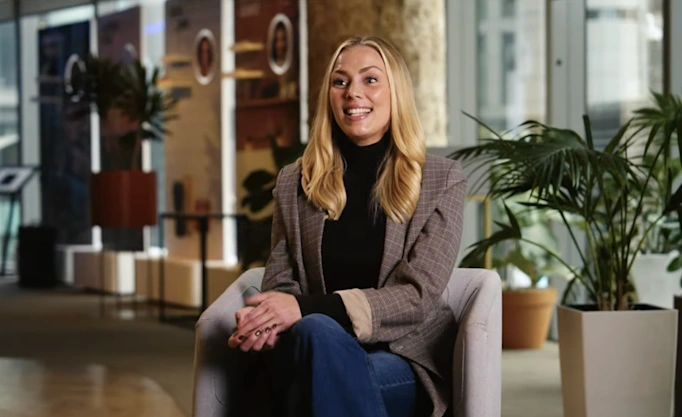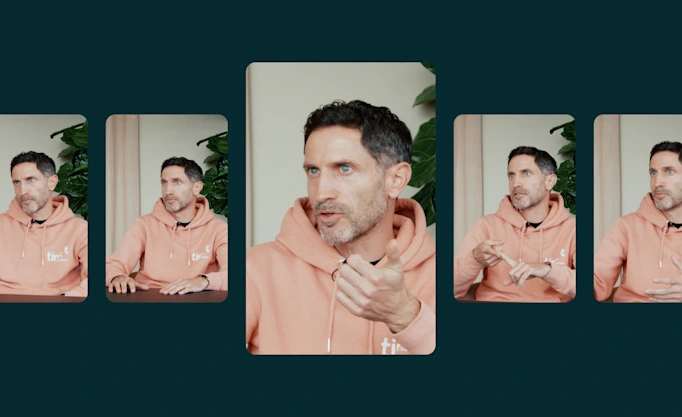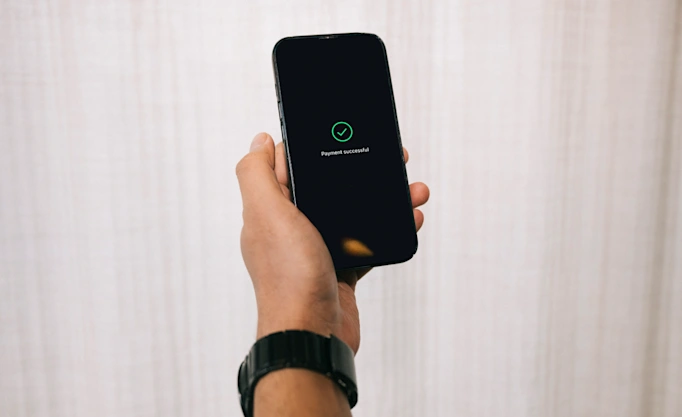How open banking is a game changer for sustainability

Open banking is proving to be a crucial tool in the fight to reduce carbon footprint and behave more sustainably - for individuals and businesses alike. By plugging open banking tech into digital services, people are able to track and change their behaviour in a meaningful way – from buying more environmentally friendly products to investing in sustainable companies. Here’s how.
The pressure is mounting for individuals and businesses to cut their carbon footprint.
Banks are in the firing line to help drive the change needed to reach net zero commitments.
Digital services are springing up across Europe to tackle sustainability.
Using open banking tech to help people track and change their behaviour in a meaningful way, or invest more ethically.
The environmental impact of our consumption habits is a global concern, and many of us are trying to find ways to reduce it bit by bit. In the race to create new digital services that help people and businesses reduce their carbon footprint, open banking is increasingly becoming one of the best places to start – as the realisation grows that financial data can play a big part in the fight against climate change.
At the same time regulatory pressure is mounting on a European level, for banks and financial institutions to take steps to ensure the financial system can manage sustainability related risks, and make sure investments and loans reach green and low-carbon initiatives. As part of this, banks need to engage with customers and gather data to understand their circumstances, to help them to prepare for the switch to a low-carbon economy.
New digital services focused on sustainability have begun to pop up over Europe, that help people directly through consumer apps, or that help banks reach their customers through services attached to their bank accounts. Or even new banks altogether, that offer ecological bank accounts to help people track and offset their carbon footprint. These tools leverage the opening up of financial data to help people understand their environmental impact – with great success.
Greenly taking France by storm
Just a year after launch, French carbon tracker Greenly was already the force behind 2.5 million people in France not only measuring and understanding their carbon footprint, but improving it.
According to Greenly, Europeans have an individual carbon footprint of around 15 tonnes of CO2 a year on average. To meet the EU goal of being carbon neutral by 2050, the figure needs to be more like 3.5 tonnes. So Greenly has stepped in to help people and businesses easily understand and track their carbon footprint, while helping them change their behaviour in a meaningful way. It’s not only doing this through its app for individuals and businesses, but also works with banking giants such as BNP Paribas in France, to offer carbon tracking to its customers through their banking app.
In a nutshell, Greenly automatically tracks the impact of every expense a person makes, and puts this into a dashboard to show them what to focus on to reduce their carbon footprint – made possible by teaming up with Tink to aggregate transaction data from bank accounts across Europe. And it’s working. The users who engage with their dashboard at least every two weeks have a carbon footprint 20% lower than the average Greenly user.
Understanding the carbon footprint of a business has traditionally been just for big corporations. But smaller companies are under increased pressure to do the same. Any business can create its own carbon tracking dashboard as easily as an individual can, because Greenly has automated what is usually a very time intensive and manual process.
Svalna leading the way in Sweden
Swedish app Svalna lets individuals and businesses connect to their bank account in seconds, aggregating their transaction data, which is then categorised. The transaction data can show everything from shopping to travel, and the type of energy that’s consumed.
Svalna’s custom scoring model then gets to work, helping people calculate how green their lifestyle or business is. Once the results are in, Svalna encourages its users to set goals and gives them personalised suggestions on how to reach them. They can also create groups, so users can work together to have a bigger positive environmental impact, or compete to reduce their footprint the most.
Svalna had originally built connections to Sweden’s four biggest banks on its own. But it took too much time and focus to maintain. Their users wanted to connect to more banks. So by using Tink’s API, their users can now connect to more than 3,400 banks across Europe.
Just the beginning
Open banking offers a way for banks and fintechs to build services that really make a difference, by using transaction data in a meaningful way. And what we have seen today is just the first step.
With the UN climate change conference Cop 26 looming later this year, and financial services in the firing line to drive the change that’s needed for countries to meet net zero commitments, we are set to see much more innovation. Services that help people and businesses become more conscious of what they buy, how they behave and what they invest in – to improve their footprint on the planet.
Find out how you could help build the future of financial services with Tink.
More in Open banking

2025-11-20
3 min read
Tink powers the UK’s first cVRP transaction with Visa A2A
In partnership with Visa, Kroo Bank, and Utilita, we’ve just helped demonstrate the UK’s first commercial variable recurring payment (cVRP) using the Visa A2A solution – and it’s a big step forward for how people make regular payments.
Read more

2025-06-09
11 min read
The case for “Pay by Bank” as a global term
Thomas Gmelch argues that "Pay by Bank" should be adopted as a standard term for open banking-powered account-to-account payments to reduce confusion, build trust, and boost adoption across the industry.
Read more

2025-06-02
3 min read
Tink joins Visa A2A – what it means for Pay by Bank and VRP
Visa A2A brings an enhanced framework to Pay by Bank and variable recurring payments (VRP) in the UK, and Tink is excited to be one of the first members of this new solution.
Read more
Get started with Tink
Contact our team to learn more about what we can help you build – or create an account to get started right away.
